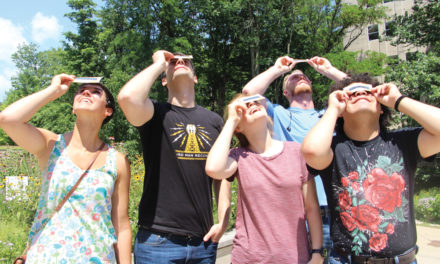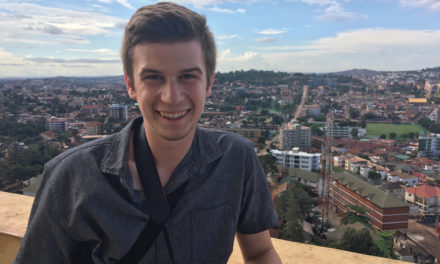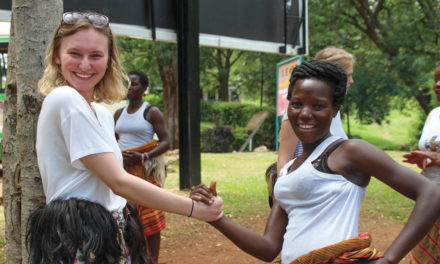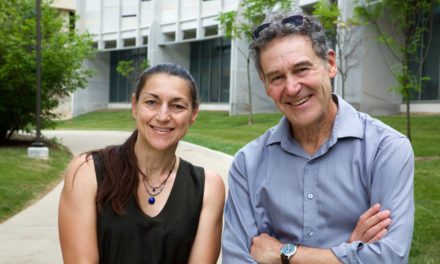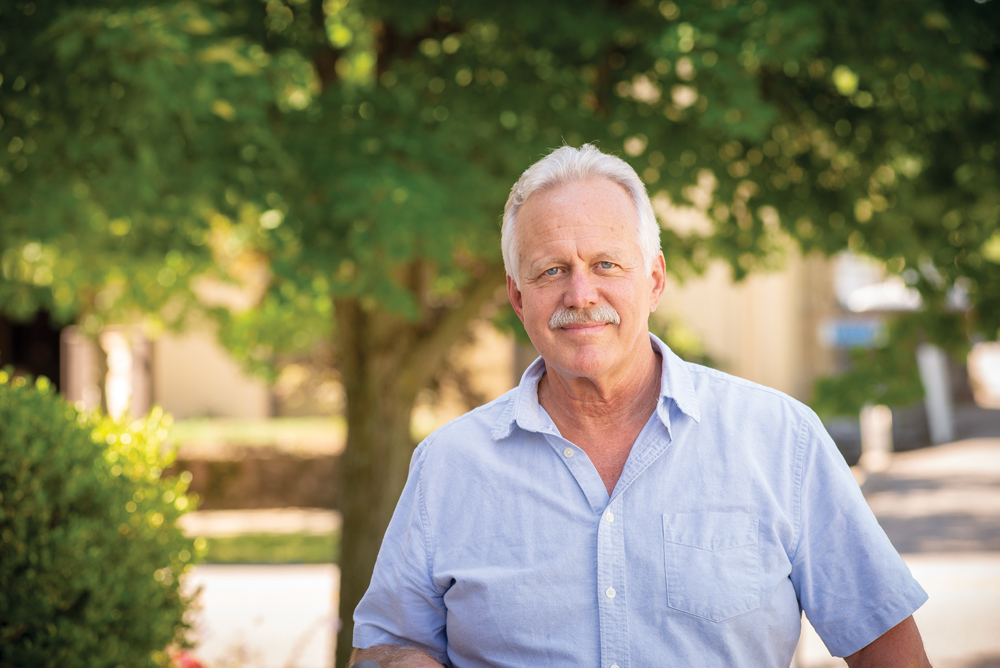
Dave Mann. Photo by Rodney Margison
BY SUSAN M. BRACKNEY
The vast majority of scientists agree that, unchecked, global climate change will continue to impact weather patterns, glaciers will keep melting in record time, and coastal lands will be flooded by rising sea levels. The problem is vast and can seem overwhelming. That’s how Marshall Saunders, a California real estate broker, felt before founding Citizens’ Climate Lobby (CCL) in 2007.
Rather than fighting on multiple fronts, the international nonprofit organization focuses resources on just one outcome—passing Carbon Fee and Dividend legislation. “The goal of Carbon Fee and Dividend is to make the fossil fuel industry pay the true cost to society for the pollution it causes,” says David Mann, who has belonged to the Bloomington-based South Central Indiana Chapter of CCL since its 2013 inception
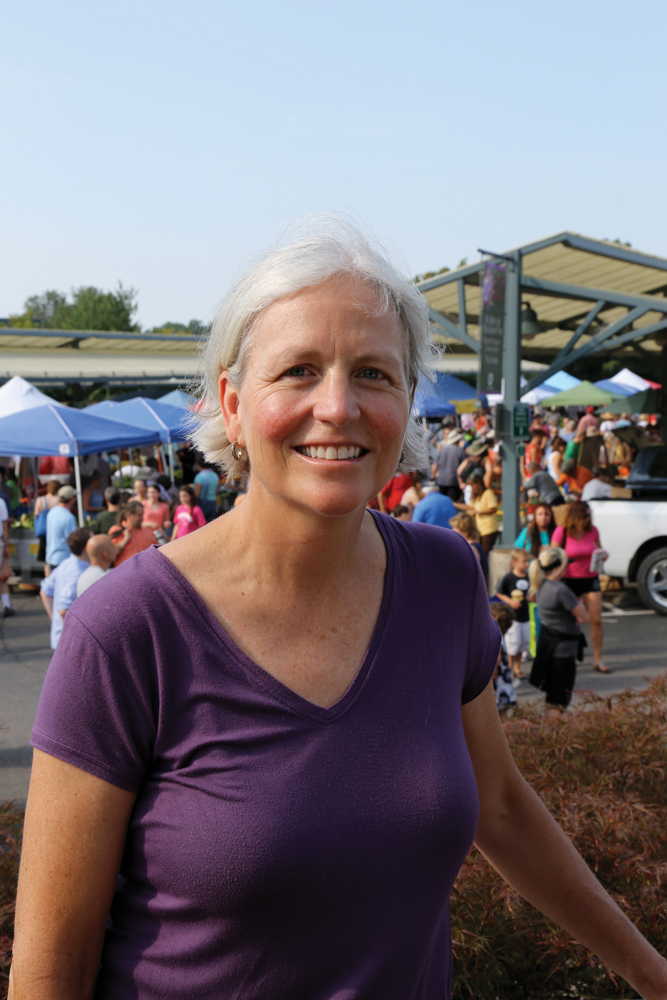
Marcia Veldman. Photo by Jim Krause
Mann explains that, in simple terms, what this all means is that when companies pull coal, oil, gas, or other carbon-releasing products from the ground, they’ll be assessed a carbon tax. “The fees will be 100 percent returned to the public [and] distributed equitably,” Mann says.
Pooling these collected fees and paying them to the general public as dividends would help offset price increases in gasoline and other carbon-taxed products. “It goes to households on a quarterly basis and isn’t based on wealth,” South Central Indiana CCL Chapter leader Robert Meitus says. “The Trump household of four members would get the same amount as somebody working as a waitress.”
Carbon Fee and Dividend legislation could also level the playing field for products made with cleaner solar and wind energy. “Eventually, those products will cost less than fossil fuel-produced products,” Mann notes.
There are currently 480 CCL chapters worldwide. The Bloomington CCL chapter began after a CCL representative from California contacted the Green Sanctuary Task Force of the Unitarian Universalist Church of Bloomington. “Citizens’ Climate Lobby was trying to get a group started in every state in the country, and Indiana was one that didn’t have a group yet,” CCL State Coordinator Marcia Veldman explains.
Members across the country attend national lobby days in Washington, D.C., and in their state legislatures to talk about Carbon Fee and Dividend with lawmakers. During local training, the national CCL group taught members how to lobby legislators and their staffs, how to interact with the media, and how to educate the public. “We learned about different levers for building political will,” Veldman says. Indiana now has seven CCL chapters.
Besides a common goal, chapters also share a strictly nonpartisan approach. “We need to work with each other from a place of respect,” Veldman says. “Nothing will change unless we can learn how to listen to one another and connect on a human level.”
To date, Bloomington’s CCL chapter has been well-received, Veldman says. “I believe the best antidote to despair is action,” she says. “Engaging in person with members of Congress, I’ve definitely been impressed by their interest. That’s really heartening.”
Visit citizensclimatelobby.org to learn more.
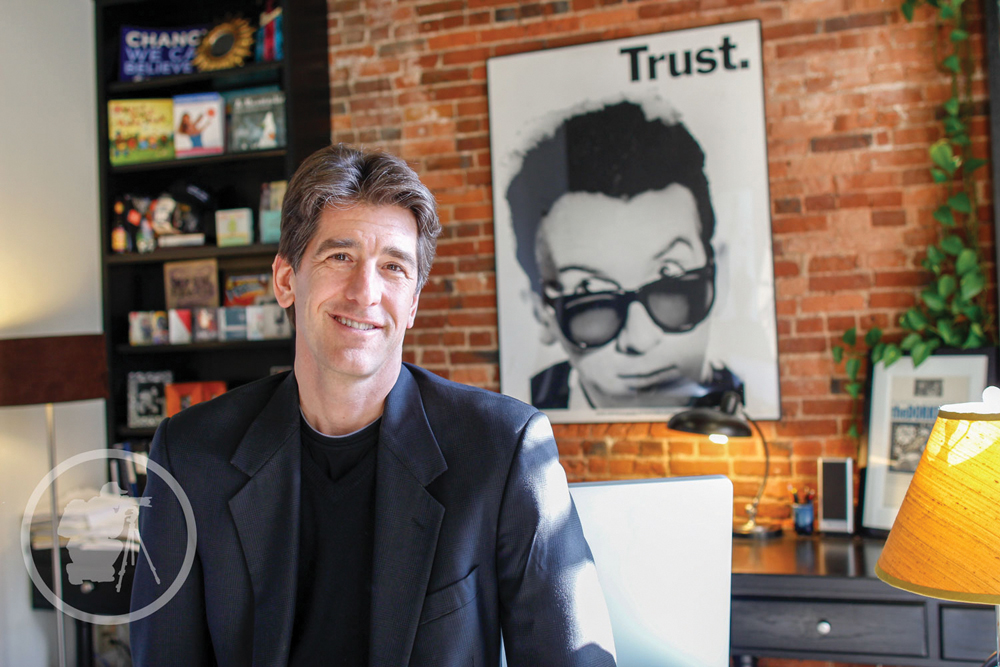
Robert Meitus. Photo by Darryl Smith


